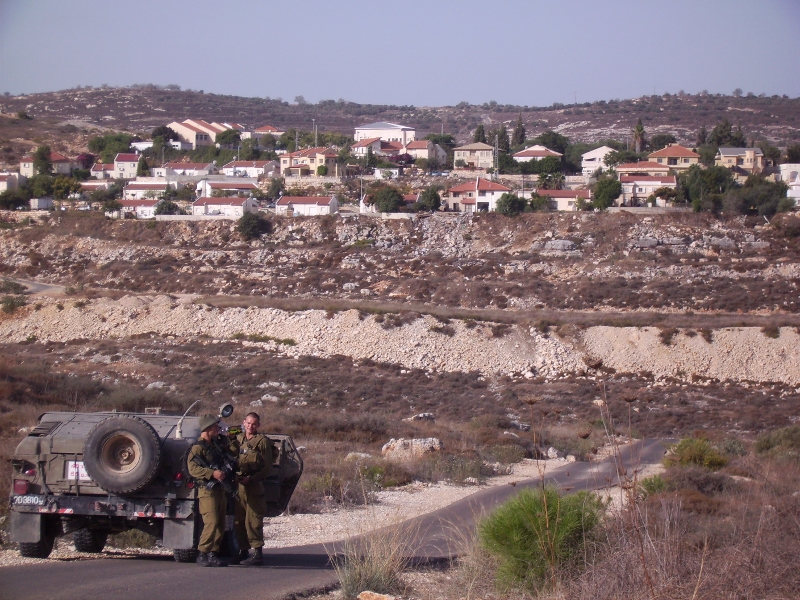Category: Journals
-
Qusin farmers face difficulty in olive harvest
16 October 2010 | International Solidarity Movement On Saturday, for the first time in several years, families in the village of Qusin with properties close to the illegal settlements Shave Shomeron and Shave Shomron, were able to spend a few hours harvesting their olives before soldiers forced them to leave. One of these families has…
-
Settler press conference and clash in Sheikh Jarrah
16 October 2010 | International Solidarity Movement Thursday illegal settlers of the Umm Haroun Compound of Sheikh Jarrah, Jerusalem gave a press conference about their plans for the upcoming year. The Settlers’ Organization stated that they plan to build two new blocks of settlements and a holy tourist park of biblical archeology on the Palestinian…
-
A tour of the maze of Israeli (in)justice
11 October 2010 | Stella, International Solidarity Movement The international activists that were arrested at the demo on Saturday witnessed a 25 years old Palestinian, with mental problems, while he was extorted the confession that he was throwing stones. However he had been arrested at the very beginning of the demonstration when no one was…

